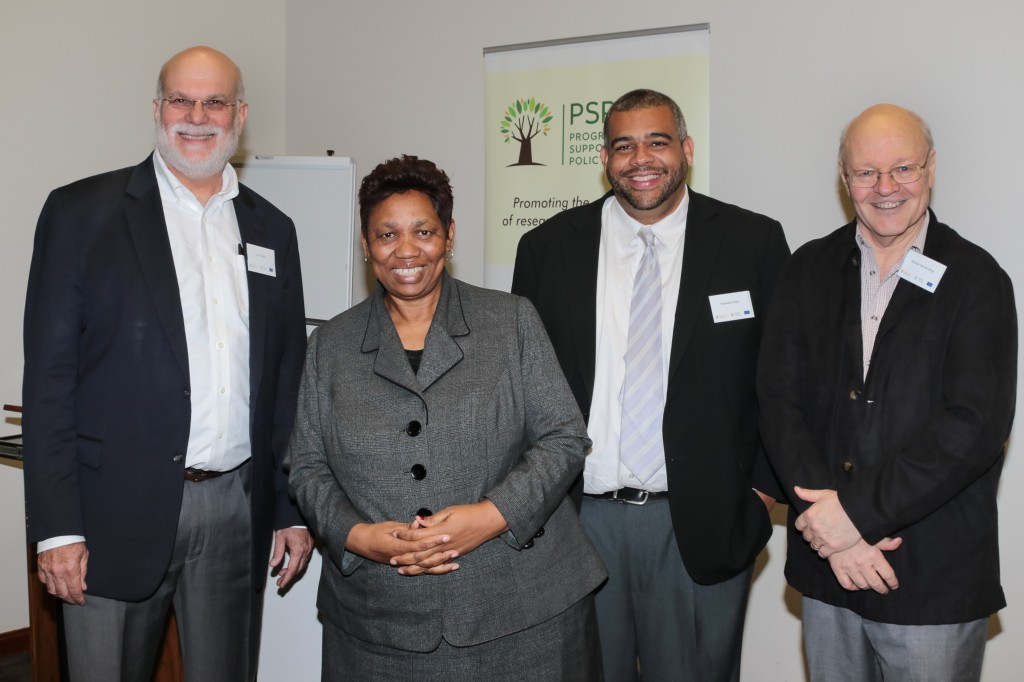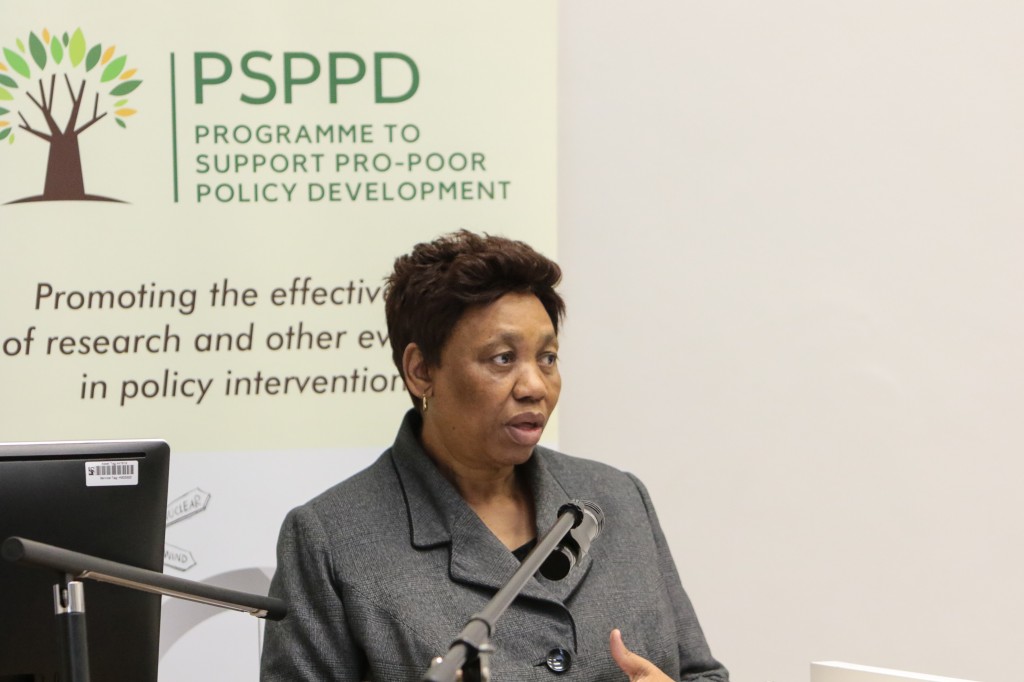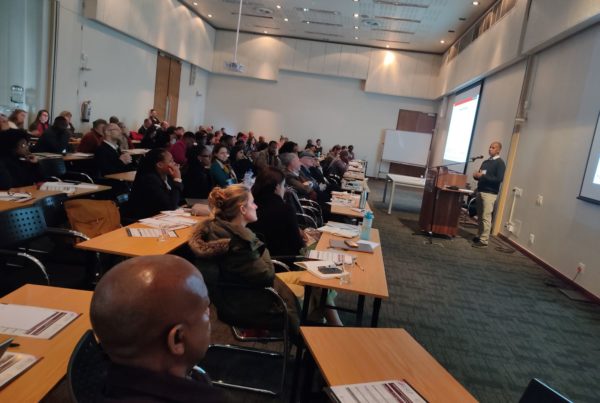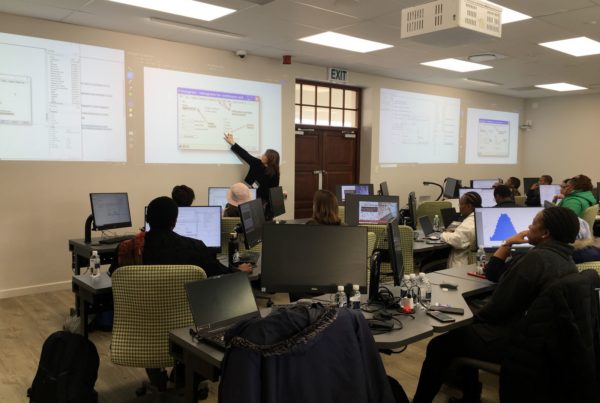On the 19th and 20th of September this year, RESEP hosted the “Conference on Quantitative Applications in Education” at STIAS. The conference was attended by 85 participants from government, academia and civil society, with a keynote address by the Minister of Basic Education Ms Angie Motshekga.

In her address, the Minister highlighted the importance of basing education policy on rigorous research. The Minister reiterated the important links between her Department and the research community:
“I want to acknowledge the valuable work that has been generated by the RESEP group recently. And not only be those directly part of RESEP, but also by many others here today, who are part of a growing network of people focused on understanding the challenges of the education sector and on offering solutions that can be implemented at a policy level. The two reports released earlier this year by RESEP have been tremendously influential in shaping thinking around what should be the priorities in education policy. These are the report on “Binding Constraints” in the sector and the report on “Laying Firm Foundations” through getting reading right.”

The conference heard from two international researchers based at the Research Triangle Institute: Dr Luis Crouch and Dr Benjamin Piper. Further presentations were given by researchers from the Department of Basic Education, the Human Sciences Research Council (HSRC), the Joint Education Trust (JET), as well as those based at the University of Johannesburg, the University of Stellenbosch, the University of Cape Town, the University of KwaZulu-Natal, and the University of Witwatersrand. Links to the powerpoint presentations can be found below:
Day 1
- Servaas van der Berg (SU) – Education and Inequality
- Address by Minister Angie Motshekga
- Hendrik van Broekhuizen (SU) “Teacher supply in South Africa: A focus on Initial Teacher Education (ITE) graduate production”
- Luis Crouch (RTI) “We know the cost of information: do we know the value? An approach to valuing information for the SDGs’
- Wayne Hugo (UKZN) “The loss of power in powerful knowledge: the consequences for education policy of increasing inequality”
- Lara Ragpot (UJ) “The effect of the ThinkMath intervention on low performing South African children’s early numeracy skills?”
- Vijay Reddy (HSRC) “Smooth, staggered or stopped? Educational transitions in the South African Youth Panel Study”
- Elizabeth Henning (UJ) and Nozipho Motolo (UJ) “School beginner numeracy assessment: an interview-based test in four languages”
- Eric Schollar “Evidence-based educational development: The Primary Mathematics Research Project”
Day 2
- Janeli Kotzé (SU) “Challenging the odds: Schools performing above expectations”
- Brahm Fleisch (WITS) and Kerryn Dixon (WITS) “EGRS I Qualitative school and classroom study: North West”
- Benjamin Piper (RTI) – “Moving from RCT to national scale: Using impact evaluation results to inform national implementation”
- Carla Pereira (JET) “An evaluation of the DBE-JICA Mathematics Project”
- Stephen Taylor (DBE), Nompumelelo Mohohlwane (DBE) and Brahm Fleisch (WITS) “Evaluating the impact of three early grade reading interventions: interpreting the midline results”
- Chris van Wyk (SU) – “Education Data in South Africa”
- Kerwin Fortune (SU) “The relationship between student engagement and reading scores in South Africa: A mediation analysis”
- Surette van Staden (UP) “Social interaction determinants of South African Reading Literacy”








